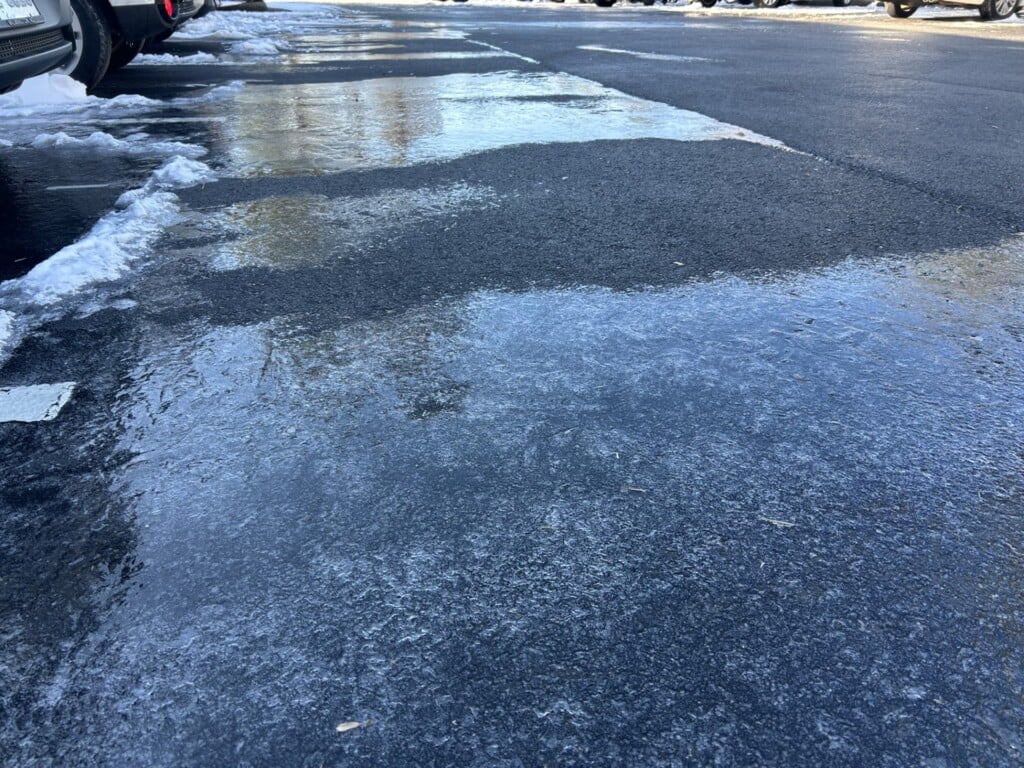EPA grants Chemours permission to import toxic chemical compound from the Netherlands
WILMINGTON, NC (WWAY) — The Environmental Protection Agency has given Chemours permission to import GenX from the company’s facility in the Netherlands to its Fayetteville works plant.
GenX is a chemical compound used to make items like Teflon. For many years, the toxic chemical compound contaminated the drinking water of thousands of people living in the Cape Fear Region of North Carolina.
According to a letter from the EPA, the timeframe for Chemours’ consent to import the chemical compound was for a period of one year, beginning on September 8, 2023 and ending on September 7, 2024.
The EPA’s decision to allow the import is not sitting well with Clean Cape Fear, an organization fighting against PFAS contamination.
“We’re wondering if what’s happening is that regulations are becoming stricter and stronger in Europe and so, Chemours is trying to figure out what to do with some of their global waste and since the United States is dragging its feet on regulating P-FAS, we’re now becoming the global dumping ground and I think we deserve better,” said Clean Cape Fear Co-founder Emily Donovan.
In a statement emailed to WWAY on Thursday, Chemours said it works with the EPA and others who review and approve the permits required to perform this activity.
The Chemours statement also went on to state, “The volumes contained in the permits issued in the Netherlands provide maximum allowable levels authorized for transport… and we anticipate that actual volumes of compound received for recycling will be far lower.”
Six years ago, GenX was discovered in the Cape Fear River and even today we’re still learning about the impacts of the so-called ‘forever chemical’ and ongoing clean-up efforts.
The North Carolina PFAS Testing Network provides planning and oversight for those researching the chemical compound and its impact(s) on the environment and people. According to the NCPFAS website, they are a multidisciplinary multi-institution team of world-leading PFAS experts. Partner universities include Duke University, East Carolina University, NC Central University, North Carolina Agricultural and Technical University, NC State University, The University of North Carolina at Chapel Hill, University of North Carolina Charlotte, and the University of North Carolina at Wilmington.
On Thursday, a group from UNC Chapel Hill attended a summit at the Blockade Runner Beach Resort at Wrightsville Beach to talk about a research project called “NC Pure” which looks at new ways to safely remove PFAS and other and other similar chemical compounds from our waterways.
The project’s lead research chemist, Irene Manning Harmody, says while early results are promising, the technology is still several years away from widespread commercial use.
“We are aiming to make technologies that when made on large scales are as affordable as existing technologies,” Harmody says. “Right now, because they’re so new, that’s impossible but that’s sort of our goal over the next few years is to be able to manufacture at a scale which would be compatible with that. That’s sort of out of the bounds of the current NC Pure Project.”
The project is still in the testing phase. Harmody says the team is preparing to place a handful of full scale pilot tubes at several sites throughout the state.
UNC Chapel Hill Chancellor Kevin Guskiewicz says: despite the work that is already underway, this is an issue that needs as much collaboration as possible to be solved.
“PFAS is a situation that is gonna be around for a while,” Guskiewicz said. “We have to find a way to identify where it is and how we can treat our waters. From chemists, to biologists, to environmental scientists, its going to take a collaborative effort to solve this problem.”
Chemours’ Fayetteville Works site receives recovered HFPO-DA from our Dordrecht Works facility for recycling, after which it is reused in the manufacturing processes to produce essential fluoropolymers for use in applications like semiconductor and electric vehicle production. Reclaiming and recycling HFPO-DA is an important circularity activity that helps reduce the need to manufacture larger volumes of new, virgin HFPO-DA. Chemours works closely with EPA and other authorities who regularly review and approve the permits required to perform this activity.
This process is not new to Chemours or Fayetteville Works as evidenced by several media reports on the matter dating back to at least 2019.
The volumes contained in the permits issued in The Netherlands provide maximum allowable levels authorized for transport. We anticipate that actual volumes of compound received for recycling will be far lower, closer to amounts received historically. Chemours’ Fayetteville Works has emissions control technologies in place to abate emissions of fluorinated compounds in accordance with our operating permits and levels contained in the Consent Order agreement with NC DEQ and Cape Fear River Watch.




